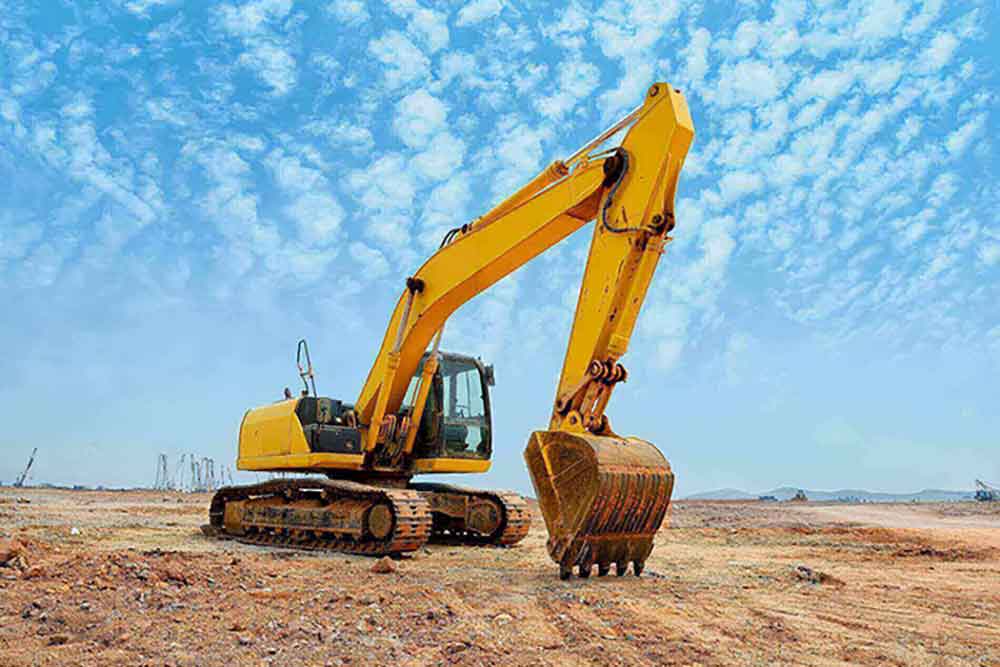Boom Lift Rental: Reach New Levels Securely
Wiki Article
Renting Out Vs. Purchasing Building And Construction Tools: Making the Right Choice for Your Task
When beginning on a construction task, one of the vital decisions that project supervisors and stakeholders encounter is whether to lease or purchase construction equipment. The decision pivots on different variables such as expense considerations, task duration, equipment maintenance, scalability, adaptability, and danger administration.Cost Considerations
When assessing the financial facet of renting out versus acquiring building and construction equipment, the upfront costs and long-lasting expenditures must be thoroughly considered. Renting out equipment commonly needs lower initial settlements contrasted to buying, making it an appealing choice for temporary tasks or contractors with budget restraints. Renting out removes the demand for huge resources investments and reduces the economic threat related to equipment possession, such as maintenance and depreciation prices. Nevertheless, in the future, continually leasing equipment can collect greater costs than purchasing, especially for prolonged jobs.On the other hand, acquiring construction tools entails greater upfront expenses yet can cause long-term financial savings, especially for long-term tasks or regular individuals. Possessing tools gives flexibility, convenience, and the potential for resale worth once the job is completed. Furthermore, having equipment permits modification and knowledge with details equipment, potentially enhancing performance and performance on-site. Eventually, the choice in between renting out and purchasing building equipment rests on the job's period, frequency of usage, budget factors to consider, and long-term economic objectives.
Task Duration
:max_bytes(150000):strip_icc()/Balance_Must_Have_Earth_Moving_Construction_Heavy_Equipment_844586-c5b6ac9e5c074c11ad41e9acaea8f099.png)
On the other hand, for long-lasting jobs or ongoing building job, getting equipment could be the much more cost-effective option. Buying tools can result in set you back savings in the lengthy run, particularly if the equipment will be often made use of. Furthermore, possessing tools supplies a feeling of control over its availability and enables for modification to fit certain task demands.

Equipment Upkeep
Offered the vital role job period plays in establishing the most cost-effective technique between renting out and purchasing building tools, the focus currently changes towards taking a look at the vital facet of tools upkeep. Appropriate maintenance is crucial for making certain the ideal performance and longevity of building devices. Leasing equipment often comes with the benefit of having well-kept equipment given by the rental firm. This can relieve the problem of upkeep jobs from the project owner or specialist, conserving time and initiative. On the various other hand, owning equipment needs an aggressive method to upkeep to stop breakdowns, ensure safety and security, and expand the tools's lifespan. Normal assessments, maintenance, and timely fixings are essential to keep owned and operated tools in leading functioning problem. Factor in maintenance costs when determining between official website renting and buying, as disregarding maintenance can bring about costly repairs, downtime, and job hold-ups. Ultimately, a well-kept building and construction devices fleet, whether rented out or possessed, is essential for the effective and effective conclusion of building jobs.Versatility and Scalability
In the realm of building devices monitoring, the facet of adaptability and scalability holds considerable significance for job efficiency and source application. Opting to rent construction tools supplies a high level of versatility as it enables the fast adjustment of equipment types and quantities based upon the evolving requirements of a task. Renting enables contractors to access a vast array of specialized devices that might be needed for details tasks without the lasting dedication of possession. This versatility is specifically helpful for jobs with differing demands or unclear periods (scissor lift rental).Renting building and construction tools supplies the advantage of easily scaling procedures up or down as job demands fluctuate. click here to find out more Specialists can swiftly add or trade equipment to match the project's transforming demands without the restraints of possessing properties that might end up being underutilized or obsolete.
Threat Administration
Reliable risk monitoring in building and construction equipment operations is critical to guaranteeing task success and mitigating potential financial losses. Building jobs naturally entail numerous threats, such as equipment break downs, mishaps, and job hold-ups, which can significantly affect the job timeline and spending plan. By carefully taking into consideration the dangers related to owning or leasing building and construction tools, project supervisors can make educated decisions to lessen these potential hazards.Renting out building and construction tools can offer a degree of threat mitigation by moving the duty of maintenance and repairs to the rental firm. This can reduce the financial burden on the task proprietor in situation of unforeseen devices failures (boom lift rental). In addition, leasing offers the adaptability to gain access to specific tools for certain project phases, reducing the danger of possessing underutilized machinery
On the other hand, having building and construction equipment gives a sense of control over its use and maintenance. However, this additionally indicates birthing the full responsibility for fixings, maintenance costs, and devaluation, enhancing the monetary threats connected with devices ownership. Careful danger analysis and factor to consider of aspects such as task period, devices utilization, and maintenance requirements are crucial in identifying the most ideal alternative for reliable risk administration in building and construction tasks.
Conclusion
In final thought, when determining in between renting and buying construction tools, it is very important to think about cost, job duration, equipment maintenance, risk, flexibility, and scalability administration. Each element plays a vital role in establishing the most ideal choice for the project handy. By very carefully examining these elements, task managers can make an educated decision that straightens with their budget, timeline, and overall job objectives.
Report this wiki page